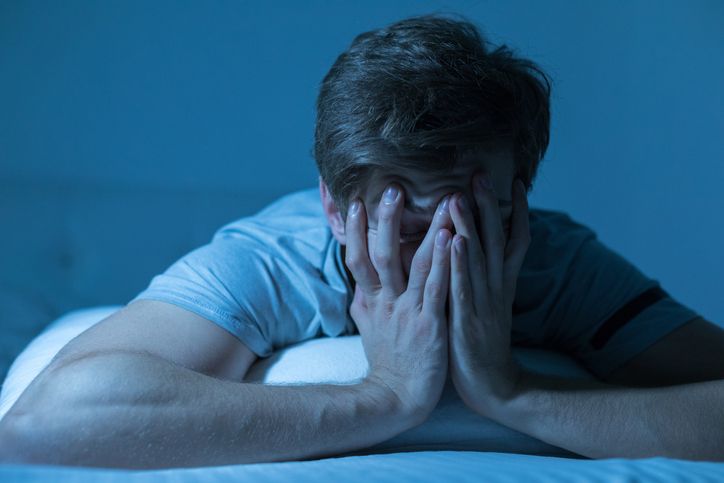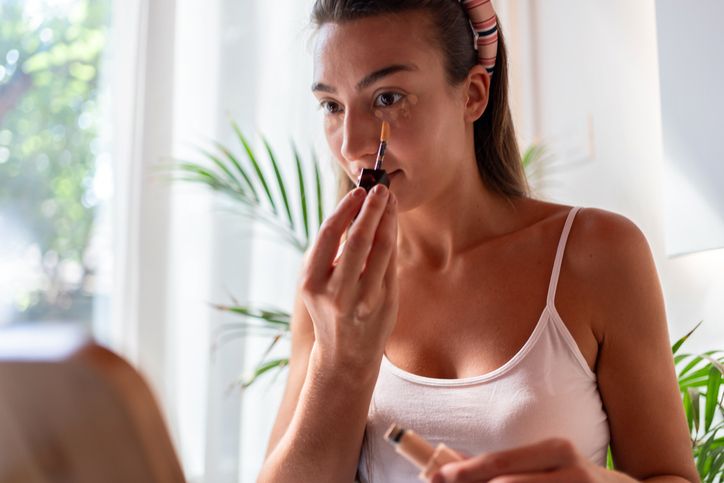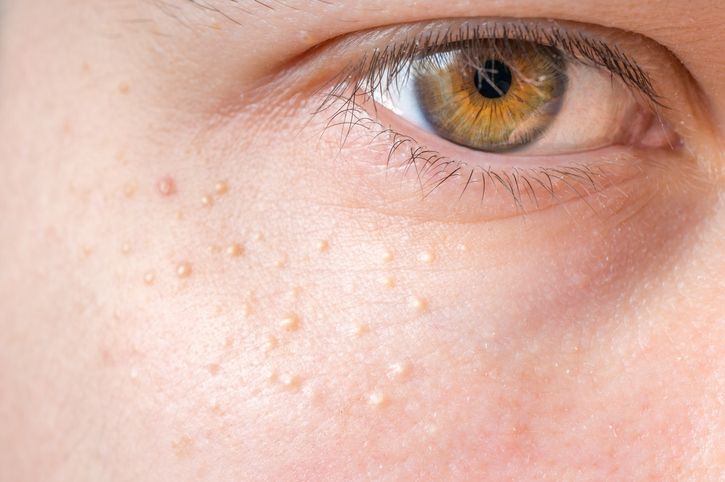- Home
- Trend
- Weight Loss Strategies
- Acne Tips
- Hair Health Information
- Blemish Removal Tips
- Acne Scar Removal Tips
- Muscle Building Techniques
- Intimate Care Tips
- Postpartum Intimate Care
- Eye Bags Wiki
- Tips for Face Slimming
- Secret of Permanent Hair Removal
- Breast Enlargement Tips
- Cure to Snoring
- Marionette Lines
- Skin-Tightening Secrets

免費體驗
Fotona 4D NightLase Snoring Treatment
1 Minute Self-Registration
Date should not be before minimal date
Sleep apnea is a common sleep disorder that affects millions of people worldwide. It occurs when the muscles in the back of the throat relax and block the airway during sleep, causing pauses in breathing or shallow breathing. These pauses can last from a few seconds to minutes and can happen many times during the night. Sleep apnea can disrupt the quality of sleep and lead to daytime sleepiness, fatigue, headaches, mood changes, and other health problems.
1
Types of Sleep Apnea

There are two main types of sleep apnea: obstructive sleep apnea (OSA) and central sleep apnea (CSA). OSA is the most common type and is caused by a physical obstruction of the airway, such as enlarged tonsils, a deviated septum, or excess tissue in the throat. CSA is less common and is caused by a problem with the brain's signals to the muscles that control breathing, such as in people with heart failure, stroke, or brain injury. Here's how they happens:
Obstructive sleep apnoea
This occurs when the muscles in your throat relax and block your airway. This can cause loud snoring, gasping, and choking sounds. Another type is central sleep apnea, which occurs when your brain fails to send the right signals to the muscles that control your breathing. This can cause you to stop breathing for a few seconds or longer, without any noise.
Complex sleep apnoea
This is a combination of obstructive and central sleep apnea. Other types of sleep apnea include congenital central hypoventilation syndrome, which is a rare genetic condition that affects the nervous system and breathing, and obesity hypoventilation syndrome, which occurs when excess weight puts pressure on your chest and limits your lung capacity.
2
Who Are The Target of Sleep Disorders? You Must Know These Risk factors

Sleep apnea can affect anyone, but some factors increase the risk of developing it. Some of the common symptoms of sleep apnea are loud snoring, gasping for air, dry mouth, morning headache, daytime sleepiness, and difficulty concentrating, which depends on whether you have mild sleep apnea, severe obstructive sleep apnea or others. If you leave it untreated, sleep apnea can increase the risk of high blood pressure, heart disease, stroke, diabetes, and liver problems. These are the risk factors that can increase the risk of developing sleep apnea.
Obesity
Excess weight can cause fat deposits in the neck and throat that can narrow the airway and obstruct the breathing. About 70% of people with sleep apnea are obese.
Age
The risk of sleep apnea increases with age, especially after 40 years. As people get older, the muscles in the throat tend to relax more and the airway can collapse more easily.
Sex
Men are more likely to have sleep apnea than women, especially before menopause. This may be due to hormonal differences and anatomical differences in the upper airway.
Family history and genetics
Sleep apnea can run in families and some genes can affect the shape and size of the face, skull, tongue, and airway. Certain genetic conditions, such as Down syndrome and cleft lip and palate, can also increase the risk of sleep apnea.
Endocrine disorders
Some hormonal imbalances, such as low thyroid levels or high insulin or growth hormone levels, can affect the structure and function of the upper airway and cause sleep apnea.
Heart or kidney failure
These conditions can cause fluid retention in the neck and chest that can interfere with breathing during sleep.
Large tonsils and adenoids
These tissues can block the airway, especially in children. They may need to be removed surgically to treat sleep apnea.
Lifestyle habits
Smoking and drinking alcohol can worsen sleep apnea by causing inflammation and relaxation of the throat muscles. Avoiding these habits can help improve sleep quality and reduce snoring.
Sleep apnea can be diagnosed by a sleep specialist who will perform a sleep study to measure the breathing patterns, oxygen levels, heart rate, and brain activity during sleep. The treatment options for sleep apnea depend on the type and severity of the condition. They may include lifestyle changes, oral appliances, continuous positive airway pressure (CPAP) devices, surgery, or medication. But before that, you should figure out how severe your situation is.
- What Causes Snoring? 7 Reasons That Can Make It Worse
- The Truth Behind Snoring! Do Anti-Snoring Mouthguards Really Work? Try the Painless Fotona 4D NightLase Snoring Treatment!
- Snoring = Sleep Apnea? 3 Types Of Sleep Apnea And The Expert-Recommended Treatment For Snoring
- How To Stop Snoring Without Surgery? 5 Strategies To Restore Peaceful Sleep in Singapore
3
Not Sure If You Develop Sleep Apnea? Check These Risk Factors Out

If you have any of these risk factors, or if you experience any of the following symptoms, you should talk to your doctor about getting tested for sleep apnea:
* Loud or frequent snoring * Breathing pauses or interruptions during sleep * Waking up with a dry mouth, sore throat, or headache * Feeling sleepy or tired during the day * Having trouble staying awake while driving, working, or studying * Having difficulty concentrating, remembering, or making decisions * Feeling irritable, depressed, or anxious * Having low libido or sexual dysfunction
Usually, sleep apnea can be diagnosed by a sleep specialist who will perform a sleep study. A sleep study is a test that records your brain activity, breathing patterns, heart rate, oxygen levels, and body movements while you sleep. The sleep study can be done at a sleep centre or at home with a portable device.
The treatment for sleep apnea depends on the severity and type of your condition. The most common treatment is continuous positive airway pressure (CPAP) therapy, which involves wearing a mask that delivers pressurised air into your airway to keep it open while you sleep. Other treatments include oral appliances, surgery, weight loss, lifestyle changes, and alternative therapies.
Sleep apnea is not something to ignore or dismiss. It can have serious consequences for your health and quality of life. If you think you may have sleep apnea, do not hesitate to consult your doctor and get tested. You deserve to have a good night's sleep and a better day.
4
How to Know Whether My Sleep Apnea Is Severe?

The severity of sleep apnea is measured by the apnea-hypopnea index (AHI), which counts the number of apneas (complete pauses in breathing) and hypopneas (partial pauses in breathing) per hour of sleep. According to the American Academy of Sleep Medicine, the AHI ranges are as follows:
Normal
AHI < 5
Mild
AHI between 5 and 15
Moderate
AHI between 15 and 30
Severe
AHI > 30
One of the challenges of diagnosing sleep apnea is that many people are not aware that they have it. They may not notice the symptoms, such as snoring, gasping, or choking during sleep, or they may attribute them to other causes. They may also not realise the impact of sleep apnea on their daytime functioning, such as fatigue, mood swings, poor concentration, or memory loss.
People with severe sleep apnea have more than 30 respiratory events per hour, which means their breathing is disrupted every two minutes or less. This can lead to low blood oxygen levels, frequent arousals from sleep, daytime sleepiness, and increased risk of heart disease, stroke, diabetes, and depression. Severe sleep apnea requires prompt diagnosis and treatment to prevent serious complications.

免費體驗
Fotona 4D NightLase Snoring Treatment
1 Minute Self-Registration
Date should not be before minimal date
5
Have Your Sleep Apnea Diagnosed? Treat It with These Methods

Continuous positive airway pressure therapy (CPAP)
The most effective treatment for sleep apnea is continuous positive airway pressure (CPAP) therapy. CPAP is a device that delivers pressurised air through a mask worn over the nose or mouth during sleep. The air pressure keeps the airway open and prevents it from collapsing. CPAP can improve the quality of sleep and reduce the symptoms and complications of sleep apnea.
Oral appliances
These are devices that fit in the mouth and adjust the position of the jaw or tongue to keep the airway open.
Surgery
This is an option for people who have severe or anatomical causes of sleep apnea, such as enlarged tonsils or adenoids, a deviated septum, or a narrow jaw. Surgery can remove or modify the tissues that block the airway.
Lifestyle changes
These include losing weight, quitting smoking, avoiding alcohol, sleeping on the side or with the head elevated, and treating nasal congestion or allergies.
6
Partner Or Relative Has Really Loud Snoring? Advise Them Now

After all, sleep apnea is a common but treatable sleep disorder that should not be ignored. If you suspect that you or someone you know has sleep apnea, talk to your doctor or a sleep specialist about getting tested and finding the best treatment option for you. If you have someone around you that has really loud snoring, when they are trying to argue with you on the severity and seriousness of having sleep apnea, tell them what they need to know to ensure they can get their sleep apnea treated as soon as possible.
I think snoring is harmless and normal.
Fact: Snoring can be a sign of sleep apnea and should not be ignored. Snoring indicates that there is some degree of obstruction in the airway that can affect the quality of sleep and oxygen levels in the blood.
Don't worry, only older or overweight people have sleep apnea.
Fact: Sleep apnea can affect anyone, regardless of age, weight, gender, or ethnicity. However, some factors increase the risk of developing it.
I don't think sleep apnea is a serious condition.
Fact: Sleep apnea is a serious condition that can have short-term and long-term consequences for health and well-being. Untreated sleep apnea can increase the risk of high blood pressure, heart attack, stroke, diabetes, depression, cognitive impairment, and motor vehicle accidents.
7
How Perfect Medical's Fotona 4D NightLase Snoring Treatment Can Treat Sleep Apnea

Getting a lasting night sleep is no longer tough for people with sleep apnea, if you have tried the Fotona 4D NightLase Snoring Treatment.
This treatment from Perfect Medical is a laser treatment that helps people sleep better without hurting them in any way. It helps with sleep apnea and snoring by using a laser to gently tighten the tissue in the mouth, and done by making the mouth mucosa tissue's collagen shrink. As the treatment goes, the laser waves can be sent to the treatment area in a way that is safe, controlled, and works best.
For those that would like to have a quick and effective treatment effect, look nowhere else because this treatment has no recovery time, you might only feel your throat is slightly dry for a short time, and you can get it solved by drinking water before and after the treatment. However, sleep apnea is not an easy task to be done, and sleep apnea patients might need several sessions to ensure that you can obtain the best effect. Treating sleep apnea isn't tough, all you need to do is book an appointment today!

免費體驗
Fotona 4D NightLase Snoring Treatment
1 Minute Self-Registration
Date should not be before minimal date
FAQ

1. How do sleeping pills work?
Sleeping pills work by affecting certain chemicals in your brain that regulate your sleep-wake cycle. Some sleeping pills, such as benzodiazepines and zolpidem, enhance the activity of a neurotransmitter called gamma-aminobutyric acid (GABA), which reduces brain activity and promotes relaxation. Other sleeping pills, such as melatonin and ramelteon, mimic the effects of a hormone that regulates your circadian rhythm, which is your natural 24-hour clock.
2. Can nasal surgery help with loud snoring?
Nasal surgery can help with loud snoring in some cases, but not in all cases. Snoring is caused by the vibration of soft tissues in your throat when you breathe during sleep. Nasal surgery can improve snoring by correcting structural problems in your nose that obstruct your airflow, such as a deviated septum, enlarged turbinates, or nasal polyps. However, nasal surgery cannot address other factors that contribute to snoring, such as obesity, alcohol consumption, smoking, allergies, or enlarged tonsils or adenoids. Therefore, nasal surgery may not be effective for everyone who snores and may need to be combined with other treatments or lifestyle changes.
3.When obstructive sleep apnea occurs, how can I measure it?
OSA severity is usually measured by the apnea-hypopnea index (AHI), which is the number of times per hour that the airflow is reduced by at least 50% (hypopnea) or stops completely (apnea) for at least 10 seconds. A normal AHI is less than 5, while an AHI of 5 to 15 indicates mild OSA, 15 to 30 indicates moderate OSA, and more than 30 indicates severe OSA.
4.What are the symptoms and risks of moderate and severe obstructive sleep apnea?
Both moderate and severe OSA can cause symptoms such as loud snoring, gasping or choking during sleep, morning headaches, dry mouth, and difficulty concentrating. However, severe OSA is associated with more serious health risks, such as high blood pressure, heart disease, stroke, diabetes, and depression. Severe OSA can also impair the quality of life and increase the risk of accidents due to excessive daytime sleepiness.
5.How does severe or moderate obstructive sleep apnea affect the liver?
OSA can cause chronic inflammation and oxidative stress in the body, which can damage the liver cells and lead to nonalcoholic fatty liver disease (NAFLD). Nonalcoholic fatty liver disease is a condition where fat accumulates in the liver, causing inflammation and scarring. Nonalcoholic fatty liver disease can progress to more advanced stages, such as nonalcoholic steatohepatitis (NASH), cirrhosis, and liver cancer. Studies have shown that the prevalence and severity of nonalcoholic fatty liver disease are higher in patients with moderate and severe obstructive sleep apnea than in those with mild or no obstructive sleep apnea.








